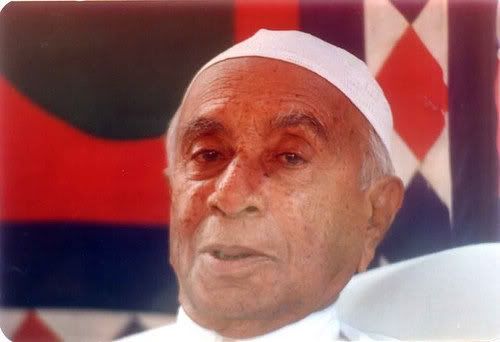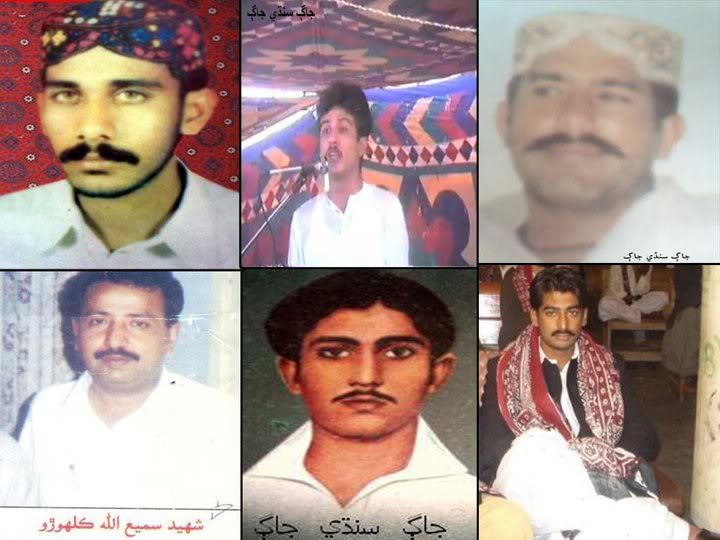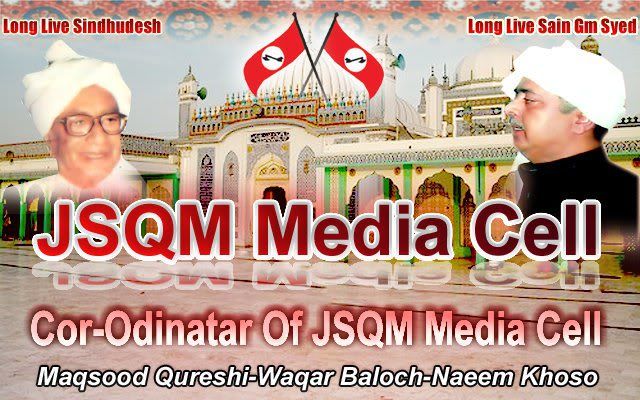A treasure trove of knowledge about the world and the universe has been acquired from various branches of learning. This knowledge has primarily been gained through research. In these efforts are included the evolutionary stages of human life- and the history of religion. The branches of learning which have unraveled truth are geology, geography, anthropology, ethnology, philology, archaeology, sociology folklore, mythology, philosophy, history, etc.
Gone are the days when truth about religion could, be known only through the revealed books, commentaries and traditions. In modern times, knowledge of religion has become a science. The research efforts of those learned men who devoted their lives to studying the above-named branches of learning on different religions, cannot be ignored. Research on religion may be divided into two types:
- Research on the special departments of particular religions.
- Research on the history of all religions, their origin, and their constituent elements, their aims and objectives.
According to the scientists, life has existed on earth for millions of years. The primary life consisted of’ amoebae, after which there came fish, creeping animals, birds, quadrupeds. Life, evolving through these stages, finally chiseled man into shape. This is the height of physical evolution. Man rightly deserves to be called the best of all creation. Like the body, intelligence had also to pass through evolutionary stages. Finally, from inorganic and organic matter, it came to inhabit in man at last.
How long human being has existed on earth? Scientists have given clear evidence of the fact that primitive man lived in forests and on hills as a brute. The early man had no idea of cultivation, rearing of cattle, use of fire or even of covering his body. He used to wander about naked. His food was tree leaves, wild fruit, raw meat and fish. He had no permanent dwelling- place. In order to protect himself from scorching heat or freezing cold, he took shelter in caves or hollows of trees.
When did he get the power of speech? What was the nature of his first conversation? What were his moral values? What were the limits of his consciousness? Attempts have been make to answer these and similar other questions. As a result of these researches, many interesting and wonderful facts have come to light. Research is continuing. It is hoped that more useful information, backed by scientific evidence will be forth coming in future.
Now think of religion. Is any of the existing faiths older than four or five thousand years? Has any religion conveyed any information about anything on the origin of life and man? Has it revealed any truth about the, earth and the universe? Has it thrown any eight on the physical features of the earth and life? If so, can all these facts stand scientific scrutiny? Modern science tells us that the primitive man had to face many hazards at every step. He found himself completely helpless in the face of these dangers the very thought of which frightened him. The fear of some objects had permanently settled in his mind. For example: sudden changes in Nature such as extreme cold or heat, heavy rains, floods, storms, earthquakes, volcanic, eruptions, etc.
Fear of beasts and hidden forces
The primitive man came across such animals in forests and rivers as the horse, the elephant, the rhino, the bear, the dragon and the crocodile. He regarded some hidden and mysterious powers responsible for his troubles and travails. Such powers, he named as genie, giants, spirits and devils. The primitive man also devised ways and means to ward off the baneful influence of these powers. Casual accidents such as epidemics, attacks by groups that are famines that are more powerful, sudden death, physical disability, disputes about possessing- women and problems concerning the means of subsistence faced him every day of his life. The primitive man considered himself perpetually insecure. Fear, despair and superstition dogged him. At last, he set about to get rid of them. He had two important problems: safety of life and satisfaction of mind and soul. For achieving the first objective, he came to some good conclusions after thousands of years. For example, he began to tame animals for getting milk and meat. This brought economic relief to him and saved him from the troubles and dangers of the hunt. He got accustomed to storing grain. During famines or periods of food shortages, he began to depend on stored-up grain. He learnt the skill of making arms from wood and stone. Thus, hunting down wild beasts became easier for him. The primitive man also learnt to produce fire. He used it in cooking grain and meat, for saving himself from the rigors of cold and for providing light. All these things made the life of the primitive man easier. The grip of fear and anxiety or his mind was somewhat loosened. It also instilled in him courage to take steps towards social change. This became the starting point for human development.
For his other important objective satisfaction of mind and soul, the primitive man achieved greater success than before. Observations, experiments, thinking and contemplation of thousands of years had given birth in his mind to some beliefs and superstitions. The important one of these was that every living being this world had a soul, which continued to live even after the end of temporal life. This created in his mind a vague idea of life after death. He began to consider useful and harmful things as powerful spirits. Thus, he started worshipping some of the trees, mountains, heavenly bodies, the elements etc.
The primitive man could not see most of the powerful spirits as physical beings, nor was he capable of forming any clear concept of them. However, because of certain manifestations, he had come to believe in them, he regarded those spirits as the cause of natural disasters and casual happenings as a potential reason for his own troubles. During this first stage of material and mental development, man was savage. The qualities of love, mercy and forgiveness were still far from him. The practices of savage life had convinced him that the visible spirits which he called gods, goddesses, genie and devils, were fierce violent and dangerous. Those spirits could be propitiated only by flattery, humble of devotion, offerings, sacrifices, incantations, rituals, vigils and magic. This way of thinking led to the invention of worship and prayer.
At some places, there was worship of the moon and the stars; at others of the rivers, the hills, the seas, tire is clouds, the trees, fire etc., were regarded as gods. To seek clemency from them, a series of acts of worship was started. This continued and man began to consider the spirits of dead animals, relatives and enemies as participants in his affairs. In order to turn the good and evil influences of these objects to his own advantage, the primitive man introduced various kinds of prayers, practices, recitations and rituals. In addition, his thinking on the material causes of creation led him to worship human limbs. The phallus came to reflect the extreme degree of sex worship.
During the same period of the creation and worship of gods, some animals were considered as good or bad. The animals, which proved useful, helpful and beneficial for a clan, were regarded as good. As they were considered friendly, they were treated with respect. Later those animals were regarded as manifestations of invisible powers and were worshipped as gods. Similarly, the animals, which proved harmful, troublesome and unprofitable, were considered evil. They were regarded as manifestations of evil spirits. Consequently, they were hated and shunned. In the books of anthropology, the good animals are called ‘totems’ and the evil ones as ‘Taboos’. Every clan selected its own totems and taboos. The result was that some animals, being regarded as good and evil in one clan, were not considered so in other clans. Further, the totems of one clan were the taboos of another. The reason is obvious. Every human group lived in different circumstances and had different experiences. Animal love or animal worship developed to such an extent that, in order to assert their superiority’ many clans started to trace their origins in favorite animals. For example: the Red Indians of California called themselves the descendants of wolves. Some well known Turkish and Mongol tribes of Tartars claimed that their ancient mother from whom they had descended, was a blue-eyed she-wolf. Some aborigines in America regarded the birds, the quadrupeds and fish as their ancestors. To this day, they are called by those names. Vatican, the famous clan of Africa, claims its descent from a boar. Some ancient inhabitants of Malaya regarded themselves as having developed from a race of Semen or apes. The inhabitants of New Guinea claim that they are sons of a fish and of a white parrot. The famous Bani Asad tribe of Hejaz and the Kehar clan of Sindh call themselves descendants of a lion.
In the past, this was the practice of tracing one's lineage to animals. Even today, the practice of naming men after favorite animals is still common. Besides, many civilized nations today use their totemic animals many civilized with great honor as their national sign. For example, the bear of Russia, the dragon of China, the eagle of Germany, America and the lion of Britain.
The nation of regarding the animals as good and evil subsequently led to the belief in lucky and unlucky stars and planets. At last, it created two great powers: ‘Good’ and ‘Bad’, ‘Right’ and ‘Wrong’, ‘Truth’ and ‘Falsehood’. The conflicting powers of ‘God’ and ‘Satan’, ‘Ahriman’ and ‘Yazdan’, born of such division of actions or attributes. Thus, it was the sum-total of human consciousness or an outcome of mental restlessness, where, after thousands of years of his physical evolution, man reached this stage through a continuo struggle for the satisfaction of spirit and mind.
Why did the consciousness of man impel him to go farther? Why did he feel restless? Why did his mind and soul crave for fulfillment? Has this craving any relative value? Has the human conscious reached its Zenith? If not, will it ever be able to do so? These are important questions. Of these, the easiest is about the craving of mind and soul for fulfillment. Even today, man appears to be as restless as he was in the past. He is yet struggling for self-fulfillment. The greater is the effort, the farther the goal recedes.
Both the bright and the dark sides are before me. I do not deny that much of the darkness has disappeared. However, at the same time, a new dawn is yet awaited. The fact is that the light of all the rising suns has remained confined to a particular sphere. No doubt, their rays kindled some nooks and corners, but instead or removing darkness, they set houses and towns on fire. There is no denying the fact that some light does appear when houses are put to the torch. But if it was the proper way of dispelling darkness then, despite many houses and habitations having been set ablaze, why’ is there a blanket of darkness ever here? Why does the ghost of prejudice, hatred and violence continue to stalk the world? Why is there competition in the use of horrible weapons of mass destruction?
However, it is not darkness alone, which has its lengthening its shadow all over the world. A single precept or a belief, too, produces a flash of light and it dispels darkness. To add more brightness to light is the real task of the men of consciousness. All hopes for good must depend on it. But what is the belief? In answer to this question, you will hear several answers. Many tall claims will be made. Dozens of leaders of new and old beliefs will try to entice you. This is seemingly a very confusing situation. The result is that doubts engulfs the mind what to accept and what to reject. Even then, the right choice is not so difficult. The touchstone is that whenever you find that, the exponents of an ideology or a belief preaching hatred and inciting people in alluring words against opposing ideologies or beliefs, insisting on narrow-minded prejudices, expressing the spiritual power of their belief as indispensable not only for their own countrymen but for the people of the whole world, they are counterfeit coins. The spiritual veracity of such a faith must be in doubt. A genuine message, which can satisfy the urges of a human being, is that which is free from prejudices of race, color and religion. It primarily teaches the lesson of love. It -draws its sustenance, from the concept of brotherhood. A true faith is that which looks at man and his affairs and problems entirely from the humanitarian point of view. This true message cannot be anything but love and tolerance for conveying this message; there is no need for power, influence, or violence. Prejudice and base feelings are anathema to it. It must not be adulterated or 1 its sweetness will turn into bitter venom.
People like me, who believe in love, toleration and fellow feeling, is not without hope, that humanism will ultimately prevail. The eternally restless spirit of man will find its cherished goal. Thus, the human soul will find peace. This faith, belief, or hope is not based only on a pious wish, but also on the solid foundation of love which are not a relative term but a necessity. Even in the past, the mind and soul of man had been restless in its pursuit. Man is still restless and shall remain so unless he has attained peace. The obstacles in his way are savage sentiments. These obstacles can be overcome by the progress of’ civilization and culture. The first condition is the spirit of toleration or the respect of man as a whole. We can fulfill this condition by controlling our brute passions.
Now there remain these questions: Why did man crave for advancement? Why did he feel restless? Why did his soul and mind feel yearn for satisfaction? There is only one plausible answers to these questions: "Experience of life." Different stages in human consciousness and thought are in fact the result of good and bad experiences. They are the result of action and reaction of brute instincts. The entire history of human thought and life is in fact the history of struggle between the savage and the civilized instances of man.
The following instincts are of fundamental importance in this connection:
- Instinct of acquisition.
- Instinct of race-preservation.
- Instinct of self-preservation.
- Instinct of repulsion.
- Instinct of elation or self-display.
- Instinct of pugnacity or self-assertion.
Under this instinct, man has tried to satisfy the needs of his daily life. It has also impelled him to seek pleasure. Consequently, there arose a conflict between the individual and the group. This conflict gave birth to numerous problems in corporate as well as individual life. Constant tension and confusion led to jeopardizing peace. At last, after the century-old bitter experience, different tribes collectively evolved certain social principles and Forms in order to overcome their problems. In this way, social principles gradually began to be evolved and acquired a sacrosanct status.
Instinct of race-preservation
In the beginning, under this instinct, man used to satisfy his sexual desires without feeling ashamed. After millions of years, his mind conceived the idea of keeping society clean, thereby avoiding mutual disputes and maintaining the purity of race. Hence, on the basis of certain superstitious beliefs, arguments and personal feelings, he laid down some principles. Later, these principles served as a solid foundation for the ethical and religious code to be adopted by tribes and nations. How did these laws grow in different tribes and societies? How did they gain religious and moral sanction? On these questions, the learned men of the present age have worked, providing valuable information through their researches.
Instinct of self-preservation
From the beginning to this day, man has primarily been governed by an urge to preserve himself and his belonging. The inherent dangers challenging the safety of life goaded man into seeking refuge in superstition. As we have already seen, this dependence on superstitious was roofed in the instinct for self-preservation. This has led to a great deal of violent wars and uncertainty.
No doubt, to counter this state of uncertainty and to promote peace, the movements of non-violence and coexistence were also initiated. However, Prejudice, selfishness and mutual distrust have thwarted all attempts at achieving lasting peace.
This atmosphere which is charged with fear and hatred, does not merely exist on the -international plane. In almost all countries of the world, a horrible contact is going on. People of one nation or race, followers of one religion or sect, are fighting one another. The prayerful are bent upon exploiting and usurping- the rights of the weak. In this game of barbaric blunder, the preservation of life and property, dignity and honor appears to have become extremely difficult.
Instinct of repulsion
This instinct is based on the feelings of loss, pain, jealousy, rivalry and inferiority complex. If you look into the causes of hatred, which move individuals, tribes and nations, you will discover that there, is no greater danger to the safety and well-being of humanity and culture than hatred. That is why prophets, saints, reformers and sags have preached mutual tolerance, love and amity. They founded religions, propounded new philosophies and social values on solid foundations so as to promote peace, binding human beings love and brotherhood.
Fellow feeling and respect for humanity are the outcome of such efforts. These efforts brought into existence our cities and nations where men of different beliefs, sects, colors and races live. It is a different thing that narrow-minded and bigoted men keep on fanning the flame of hatred and continue to ignite the fire of dissension and disorder. The most furious fire is the fire of religious and sectarian hatred. It is easy to light. Its flames stay longer and the range of its destruction is considerably wider. What an irony that the founders of religion used it as a means for promoting human brotherhood and for fostering love and friendship. But their followers sow seeds of discord and hatred.
Instinct of elation and self-display
There is a proverb that Nature has deprived no one of beauty and intellect. Hence, we see that no man considers himself inferior to others. Everyone regards himself a paragon of beauty and intelligence. To a certain extent, this self-confidence is necessary and good. But when this feeling degenerates into self-deception, man becomes vain, and, in order to assert his authority on others, he takes recourse to force and violence. The ego of’ individuals sometimes destroys social values. An inflated ego, therefore, becomes a great obstacle in the way of peace and progress. To control the vice of egotism in man, certain religions have prescribed self-control and asceticism but these too have failed to deliver the goods.
Instinct of pugnacity or self-assertion
Some animals are carnivorous and social herbivorous. Man is a combination of the two. In him the gregarious habit has developed because of vegetarianism. But he gets incited at the slightest provocation. It is due to his being carnivorous. The instinct of pugnacity forces him to be violent. Therefore he fights and sheds blood. These acts of violence he calls heroism and bravery. The powerful oppressing the weak, the fighting tribes dominating the less aggressive ones, the conquest of a foreign land on the basis of military superiority, the rich exploiting the poor, are the results of this instinct.
Because of its unhealthy effects and inducement to emotionalism, some religions have called the consumption of meat as an act of savagery. They have found it detrimental to society. Hence, they have advocated vegetarianism and non-violence. Other religions regarded pugnacity as a natural instinct and therefore, they recommend people to make the best use of it. However, man has not so far been able to get rid of the baneful effect of the excess of emotion.
From the study of the influence of instincts on the evolution of human intellect and beliefs, it becomes clear how religions and superstitions have originated and how religion, through different revolutionary stages, has acquired its present form. If all these stages are critically analyzed, the following results are obtained:
- Religious beliefs were the product of fear and doubt, which impelled the primitive man into superstitions.
- To dispel doubts, magical charms, incantations, and sacrifices were the methods, which were employed in the beginning, the purpose of which was either to vanquish or flatter vague hidden powers.
- All the existing religions such as Hinduism, Buddhism, Christianity, Judaism. Islam, Jainism, Zoroasterainism Taoism, have in some form or the other the elements of primitive beliefs and rituals. For example: faith in the earthly spirits, heavenly bodies, material objects, living creatures; the control of hidden forces; making- of sacrifices and offering-s to propitiate them; trust in the spell of some words; burning of incense, wearing of threads and charms; ideas regarding lucky and unlucky numbers. All these tenets are rooted in primitive beliefs.
- Modern organized religions are no more than five thousand years old at the most.
- Just like religions and the modern social laws are investigated, it will be discovered that the origins of most of them can be traced to the ancient customs and rituals.
- The same is true of modern moral precept research; many a prevalent moral precept will appear to have its roots in the old tribal values.
- Religions had their origin in the worship of many gods. Then followed Dualism (Ahriman and Harmazud), then Trinity (Father, Son and Holy Ghost) and finally Unity where a single God carne to be worshipped. These are various stages in the evolution of religion.
- In the earl religions, gods were regarded as vengeful and cruel. The concept of a compassionate and benevolent God was a later product.
- Religious beliefs, faith in superstitions, rituals and prayers have lost much of their sanctity after the scientific inventions and the rise of intellectualism.
- According to the theory of evolution which the Quran, all religions have been evolving one after another or one along with the other. Besides, their practices have been changing according to the demands of time.
- The origination of modern organized religions their commentators have also made changes in ancient beliefs, practices, prayers and ritual accordance with the exigencies of times and dictates of social conditions. Some old things retained and new ones were added so as to start changing requirements. In this way, world religions came into existence, and much room was left for further changes (Ijtehad) in them.
- The claim made by the founders of religions that they were gifted with supernatural wisdom and knowledge and had the power of revelations, was for impressing the importance of their good messages on the people.
It is absolutely clear that the way the founders of religions have brought about changes in the social and moral laws according- to the chancing demands of society, so have they amended or rejected the previous precepts in order to create a harmony with the intellectual urges of their times. Not only that each religion inherited the legacy of another, it also ushered in progressive reform. Thus, every, religion widened the scope of human brotherhood, removed the obstacles in the development of society, and became the raison d’être for the promotion of peace and prosperity.
So long as a religion kept on performing its real role, its leaders and followers continued to retain the warmth of Generosity not for themselves, but for others too. They did not feel offended if questions of ‘what’ and ‘why’ were posed to them. Similarly, free inquiry and differences were not regarded as an affront. To win
others to their side, only practical examples and cogent arguments were used. But when religion became a mere ritual and it no longer remained a dynamic force, its custodians and commentators stagnated and they became archaic. Traditional concepts as well as old moral and social ways of life were regarded as eternal. Eyes were closed to the progressive demands of societies and the use of reason was forbidden.
The cumulative result was that the followers of religion were confined to within the limits of narrow-mindedness and bigotry. So great was their alienation that they became groups striving for economic benefits. Again, just as powerful nations dominated the weak ones, so did larger religious communities devour smaller ones. Thus, they assumed the form of religious imperialism.
These two kinds of imperialism are different only in one respect. Just as international imperialism exploits the weak nations on the basis of its superiority in power and wealth so does religious imperialism dominate a weaker sect or a minority community.
We see today that groups of professional commentators exist in almost every major religion. In order to safeguard their vested interests, these people consider it necessary to claim that the solution of all the problems of humanity is possible only and only through their religion. Other religions are not only incapable of doing so, but their followers are bound to go to hell. They pose as if they have a monopoly of ‘truth’ and that they have the exclusive right to decide as to who will go to heaven or hell.
Such thoughts may be of some importance to particular group, but for the purpose of the unity of mankind, universal peace, social progress, these ideas are opposed to the real spirit and high ideals of religion. They lay the foundation of bigotry, hatred and conflict and are highly detrimental to the progress and prosperity of the human race. If malice and prejudice are not banished, we may face a disaster of unprecedented proportions.
















Currently have 0 comments: